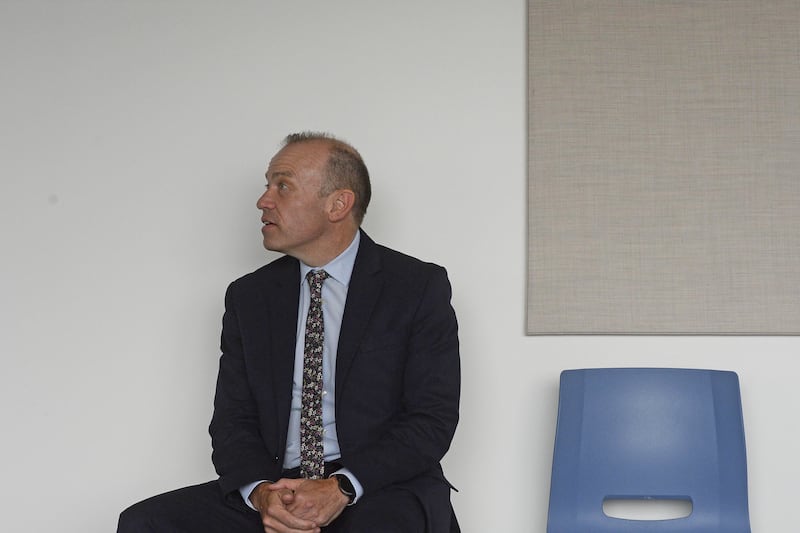The announcement by Ulster Unionist leader Mike Nesbitt that he intends to give his second preference vote to the SDLP in next month’s Assembly election could be regarded as a logical and in some ways a courageous move but it may not prove to be his most pragmatic decision.
Mr Nesbitt is entitled to hope that, against all recent trends, he might be able to form an administration with the SDLP after March 2, and in other jurisdictions an electoral understanding with fellow opposition parties might well make perfect sense.
However, the 1998 Good Friday Agreement established devolved structures which are effectively based on an enforced coalition between the two main traditions represented at Stormont.
The model accepts that nationalists and unionists hold completely different constitutional views and offers them the option of either working together with an Executive or having no access to power at all.
Mr Nesbitt has headed in a different direction by suggesting there are circumstances in which he would prefer to transfer his vote under the Proportional Representation system to a nationalist rather than another unionist and saying specifically that he could not consider offering any form of endorsement to some DUP figures
He has been at pains to point out that he was expressing a personal opinion, and was not encouraging supporters to follow his example, but it is clear that his intervention has not gone down well within sections of his party.
His SDLP counterpart Colum Eastwood has also noticeably avoided giving any indication that he would favour a reciprocal gesture which involved transferring a vote to an Ulster Unionist ahead of a rival nationalist.
It will further be noted that the SDLP candidate in East Belfast, Séamas de Faoite, who would be due to directly benefit from Mr Nesbitt’s gesture, has often been publicly critical of the Ulster Unionist leader and is unenthusiastic about his latest comments.
Mr Nesbitt stuck firmly to his position while launching his party’s manifesto yesterday, and he can certainly say that he has succeeded in generating an intriguing debate.
The danger is that he has handed the DUP an opportunity to portray him in a negative light at a stage when successive polls have suggested he could be closing the gap on Arlene Foster.
What should be accepted on all sides is that the DUP’s handling of the Renewable Heat Incentive scandal is entitled to be regarded as a much more central issue in the election than the way in which Mr Nesbitt chooses to transfer his lower preference votes.







